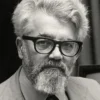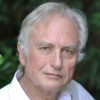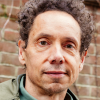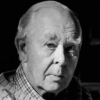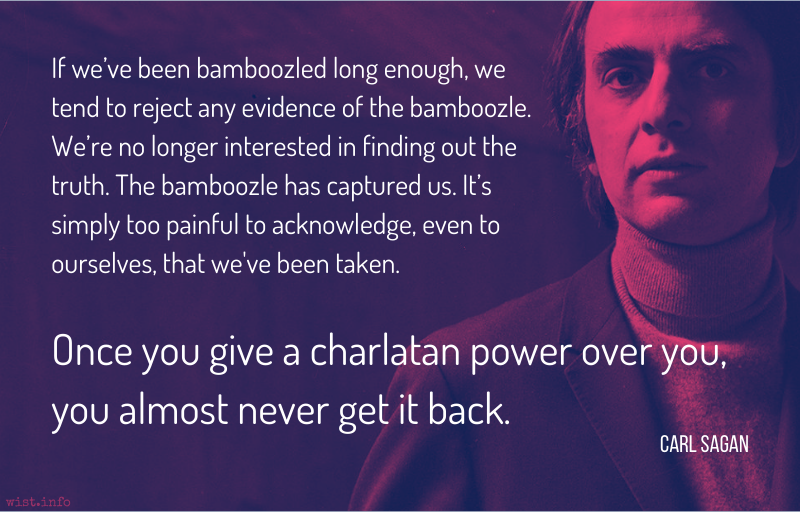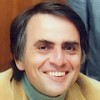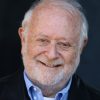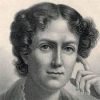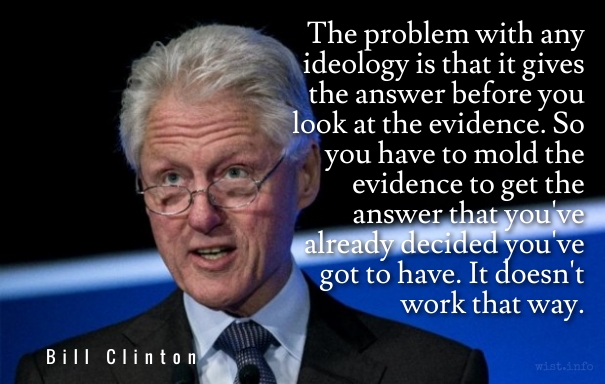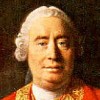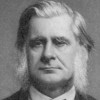FAITH, n. Belief without evidence in what is told by one who speaks without knowledge of things without parallel.
Ambrose Bierce (1842-1914?) American writer and journalist
“Faith,” The Cynic’s Word Book (1906)
(Source)
Included in The Devil's Dictionary (1911). Originally published in the "Devil's Dictionary" column in the San Francisco Wasp (1884-06-07).
Quotations about:
evidence
Note not all quotations have been tagged, so Search may find additional quotes on this topic.
But so long as men are not trained to withhold judgment in the absence of evidence, they will be led astray by cocksure prophets, and it is likely that their leaders will be either ignorant fanatics or dishonest charlatans. To endure uncertainty is difficult, but so are most of the other virtues. For the learning of every virtue there is an appropriate discipline, and for the learning of suspended judgment the best discipline is philosophy.
Bertrand Russell (1872-1970) English mathematician and philosopher
“Philosophy for Laymen,” Universities Quarterly (1946-11)
(Source)
Reprinted in Unpopular Essays, ch. 2 (1951).
People will tell us that without the consolations of religion they would be intolerably unhappy. So far as this is true, it is a coward’s argument. Nobody but a coward would consciously choose to live in a fool’s paradise. When a man suspects his wife of infidelity, he is not thought the better of for shutting his eyes to the evidence. And I cannot see why ignoring evidence should be contemptible in one case and admirable in the other.
Bertrand Russell (1872-1970) English mathematician and philosopher
“Is There a God?” (1952)
(Source)
Essay commissioned by Illustrated magazine in 1952, but never published there. First publication in Russell, Last Philosophical Testament, 1943-68 (1997) [ed. Slater/Köllner].
However that may be, it is always disastrous when governments set to work to uphold opinions for their utility rather than for their truth. As soon as this is done it becomes necessary to have a censorship to suppress adverse arguments, and it is thought wise to discourage thinking among the young for fear of encouraging “dangerous thoughts.” When such mal-practices are employed against religion as they are in Soviet Russia, the theologians can see that they are bad, but they are still bad when employed in defence of what the theologians think good. Freedom of thought and the habit of giving weight to evidence are matters of far greater moral import than the belief in this or that theological dogma. On all these grounds it cannot be maintained that theological beliefs should be upheld for their usefulness without regard to their truth.
Bertrand Russell (1872-1970) English mathematician and philosopher
“Is There a God?” (1952)
(Source)
Essay commissioned by Illustrated magazine in 1952, but never published there. First publication in Russell, Last Philosophical Testament, 1943-68 (1997) [ed. Slater/Köllner].
Once a man’s understanding has settled on something (either because it is an accepted belief or because it pleases him), it draws everything else also to support and agree with it. And if it encounters a larger number of more powerful countervailing examples, it either fails to notice them, or disregards them, or makes fine distinctions to dismiss and reject them, and all of this with much dangerous prejudice, to preserve the authority of its first conceptions.
[Intellectus humanus in iis quae semel placuerunt (aut quia recepta sunt et credita, aut quia delectant), alia etiam omnia trahit ad suffragationem et consensum cum illis: et licet major sit instantiarum vis et copia, quae occurrunt in contrarium; tamen eas aut non observat, aut contemnit, aut distinguendo summovet et rejicit, non sine magno et pernicioso praejudicio, quo prioribus illis syllepsibus authoritas maneat inviolata.]
Francis Bacon (1561-1626) English philosopher, scientist, author, statesman
Instauratio Magna [The Great Instauration], Part 2 “Novum Organum [The New Organon],” Book 1, Aphorism # 46 (1620) [tr. Silverthorne (2000)]
(Source)
(Source (Latin)). Alternate translations:
The human understanding, when any preposition has been once laid down, (either from general admission and belief, or from the pleasure it affords,) forces every thing else to add fresh support and confirmation; and although more cogent and abundant instances may exist to the contrary, yet either does not observe or despises them, or gets rid of and rejects them by some distinction, with violent and injurious prejudice, rather than sacrifice the authority of its first conclusions.
[tr. Wood (1831)]
The human understanding when it has once adopted an opinion (either as being the received opinion or as being agreeable to itself) draws all things else to support and agree with it. And though there be a greater number and weight of instances to be found on the other side, yet these it either neglects and despises, or else by some distinction sets aside and rejects; in order that by this great and pernicious predetermination the authority of its former conclusions may remain inviolate.
[tr. Spedding (1858)]
The human Intellect, in those things which have once pleased it (either because they are generally received and believed, or because they suit the taste), brings everything else to support and agree with them; and though the weight and number of contradictory instances be superior, still it either overlooks or despises them, or gets rid of them by creating distinctions, not without great and in jurious prejudice, that the authority of these previous conclusions may be maintained inviolate.
[tr. Johnson (1859)]
Once a human intellect has adopted an opinion (either as something it likes or as something generally accepted), it draws everything else in to confirm and support it. Even if there are more and stronger instances against it than there are in its favour·, the intellect either overlooks these or treats them as negligible or does some line-drawing that lets it shift them out of the way and reject them. This involves a great and pernicious prejudgment by means of which the intellect’s former conclusions remain inviolate.
[tr. Bennett (2017)]
I think [the effects of religion] have been bad because it was held important that people should believe something for which there did not exist good evidence and that falsified everybody’s thinking, falsified systems of education, and set up also, what I think a complete moral heresy: namely, that it is right to believe certain things, and wrong to believe certain others, apart from the question of whether the things in question are true or false.
Bertrand Russell (1872-1970) English mathematician and philosopher
Interview by Woodrow Wyatt, BBC TV (1959)
(Source)
Collected in Bertrand Russell's BBC Interviews (1959) [UK] and Bertrand Russell Speaks His Mind (1960) [US]. Reprinted (abridged) in The Humanist (1982-11/12), and in Russell Society News, #37 (1983-02).
An atheist doesn’t have to be someone who thinks he has a proof that there can’t be a god. He only has to be someone who believes that the evidence on the God question is at a similar level to the evidence on the werewolf question.
John McCarthy (1927-2011) American computer scientist, cognitive scientist, artificial intelligence pioneer
Usenet, rec.arts.books (1992-07-23)
(Source)
It is often said […] that although there is no positive evidence for the existence of God, nor is there evidence against his existence. So it is best to keep an open mind and be agnostic. At first sight that seems an unassailable position, at least in the weak sense of Pascal’s wager. But on second thoughts it seems a cop-out, because the same could be said of Father Christmas and tooth fairies. There may be fairies at the bottom of the garden. There is no evidence for it, but you can’t prove that there aren’t any, so shouldn’t we be agnostic with respect to fairies?
You believe someone not because you have no doubts about them. Belief is not the absence of doubt. You believe someone because you don’t have enough doubts about them.
Malcolm Gladwell (b. 1963) Anglo-Canadian journalist, author, public speaker
Talking to Strangers: What We Should Know About the People We Don’t Know (2019)
(Source)
If I let myself believe anything on insufficient evidence, there may be no great harm done by the mere belief; it may be true after all, or I may never have occasion to exhibit it in outward acts. But I cannot help doing this great wrong towards Man, that I make myself credulous. The danger to society is not merely that it should believe wrong things, though that is great enough; but that it should become credulous, and lose the habit of testing things and inquiring into them; for then it must sink back into savagery.
William Kingdon Clifford (1845-1879) English mathematician and philosopher
“The Ethics of Belief,” Part 1 “The Duty of Inquiry,” Lecture, London (11 Apr 1876)
(Source)
Every time we let ourselves believe for unworthy reasons, we weaken our powers of self-control, of doubting, of judicially and fairly weighing evidence. We all suffer severely enough from the maintenance and support of false beliefs and the fatally wrong actions which they lead to, and the evil born when one such belief is entertained is great and wide. But a greater and wider evil arises when the credulous character is maintained and supported, when a habit of believing for unworthy reasons is fostered and made permanent.
William Kingdon Clifford (1845-1879) English mathematician and philosopher
“The Ethics of Belief,” Part 1 “The Duty of Inquiry,” Lecture, London (11 Apr 1876)
(Source)
What can be asserted without evidence can also be dismissed without evidence.
Christopher Hitchens (1949-2011) English intellectual, polemicist, socio-political critic
“Mommie Dearest,” Slate (20 Oct 2003)
Sometimes referred to as Hitchens' Razor. The concept is not new (consider the Latin phrase "Quod gratis asseritur, gratis negatur"), but was popularized by Hitchens in discussion of contemporary discussion of religion, including in his work God Is Not Great (2007).
While cited by a number of sources to the 2003 Slate article on the canonization of Mother Teresa, the phrase does not appear in the 2016 reprint of the article at the time she was actually declared a saint.
More information (including the original Slate text): The long history of Hitchens' Razor • Background Probability.
History gets thicker as it approaches recent times: more people, more events, and more books written about them. More evidence is preserved, often, one is tempted to say, too much. Decay and destruction have hardly begun their beneficent work.
A. J. P. Taylor (1906-1990) British historian, journalist, broadcaster [Alan John Percivale Taylor]
English History 1914-1945, “Revised Bibliography” (1965)
(Source)
It must be remembered that evidence is never complete, that knowledge of truth is always partial, and that to await certainty is to await eternity.
John Bowlby 1907-1990) British psychologist, psychiatrist, psychoanalyst
Maternal Care and Mental Health (1951)
(Source)
The last phrase is often attributed to Jonas Salk, who used it ("It is said to await certainty is to await eternity") in a telegram to Basil O'Connor (8 Nov 1954). But as Salk himself noted, it was not original to him.
The problem with evidence is it doesn’t always support your opinion.
Stephen Colbert (b. 1964) American political satirist, writer, comedian
Interview with Ron Suskind (13 Jul 2006)
(Source)
There are inquiries in which scanty evidence is worth using. We may not be able to get certainty, but we can get probability, and half a loaf is better than no bread.
C. S. Lewis (1898-1963) English writer, literary scholar, lay theologian [Clive Staples Lewis]
“Historicism,” The Month (1950-10)
(Source)
Regarding historical inquiry based on incomplete evidence. First reprinted in Christian Reflections (1967).
As for Eisenhower himself, Welch characterized him, in words that have made the candy manufacturer famous, as “a dedicated, conscious agent of the Communist conspiracy” — a conclusion, he added, “based on an accumulation of detailed evidence so extensive and so palpable that it seems to put this conviction beyond any reasonable doubt.”
One of the saddest lessons of history is this: If we’ve been bamboozled long enough, we tend to reject any evidence of the bamboozle. We’re no longer interested in finding out the truth. The bamboozle has captured us. It’s simply too painful to acknowledge, even to ourselves, that we’ve been taken. Once you give a charlatan power over you, you almost never get it back.
Carl Sagan (1934-1996) American scientist and writer
The Demon-Haunted World, ch. 13 (1995)
(Source)
There is nobody, in the commonwealth of learning, who does not profess himself a lover of truth, — and there is not a rational creature, that would not take it amiss, to be thought otherwise of. And yet, for all this, one may truly say, there are very few lovers of truth, for truth-sake, even amongst those who persuade themselves that they are so. How a man may know, whether he be so, in earnest, is worth inquiry; and I think, there is this one unerring mark of it, viz. the not entertaining any proposition with greater assurance than the proofs it is built on will warrant. Whoever goes beyond this measure of assent, it is plain, receives not truth in the love of it, loves not truth for truth-sake, but for some other by-end.
John Locke (1632-1704) English philosopher
An Essay Concerning Human Understanding, Book 4 “Of Knowledge and Opinion,” ch. 19 “Of Enthusiasm,” sec. 1 “Love of truth necessary” (1689)
(Source)
Be not afraid! In admitting a creator, refuse not to examine his creation; and take not the assertions of creatures like yourselves, in place of the evidence of your senses and the conviction of your understanding.
Frances "Fanny" Wright (1795-1852) Scottish-American writer, lecturer, social reformer
A Course of Popular Lectures, Lecture 3, “Of the more Important Divisions and Essential Parts of Knowledge” (1829)
(Source)
Don’t you believe in flying saucers, they ask me? Don’t you believe in telepathy? — in ancient astronauts? — in the Bermuda triangle? — in life after death?
No, I reply. No, no, no, no, and again no.
One person recently, goaded into desperation by the litany of unrelieved negation, burst out “Don’t you believe in anything?”
“Yes”, I said. “I believe in evidence. I believe in observation, measurement, and reasoning, confirmed by independent observers. I’ll believe anything, no matter how wild and ridiculous, if there is evidence for it. The wilder and more ridiculous something is, however, the firmer and more solid the evidence will have to be.”
Isaac Asimov (1920-1992) Russian-American author, polymath, biochemist
The Roving Mind (1983)
See Carl Sagan.
But the problem with any ideology is that it gives the answer before you look at the evidence. So you have to mold the evidence to get the answer that you’ve already decided you’ve got to have. It doesn’t work that way.
In our reasonings concerning matter of fact, there are all imaginable degrees of assurance, from the highest certainty to the lowest species of moral evidence. A wise man, therefore, proportions his belief to the evidence. […] No testimony is sufficient to establish a miracle, unless the testimony be of such a kind, that its falsehood would be more miraculous, than the fact, which it endeavors to establish.
The essence of the Liberal outlook lies not in what opinions are held, but in how they are held: instead of being held dogmatically, they are held tentatively, and with a consciousness that new evidence may at any moment lead to their abandonment. This is the way in which opinions are held in science, as opposed to the way in which they are held in theology. The decisions of the Council of Nicaea are still authoritative, but in science fourth century opinions no longer carry any weight.
Bertrand Russell (1872-1970) English mathematician and philosopher
“Philosophy and Politics,” lecture, National Book League, London (1946-10-23)
(Source)
Collected in Unpopular Essays (1950).
Read the bible then, as you would read Livy or Tacitus. The facts which are within the ordinary course of nature you will believe on the authority of the writer, as you do those of the same kind in Livy and Tacitus. The testimony of the writer weighs in their favor in one scale, and their not being against the laws of nature does not weigh against them. But those facts in the bible which contradict the laws of nature, must be examined with more care, and under a variety of faces. Here you must recur to the pretensions of the writer to inspiration from god. Examine upon what evidence his pretensions are founded, and whether that evidence is so strong as that it’s falshood would be more improbable than a change of the laws of nature in the case he relates For example in the book of Joshua we are told the sun stood still several hours. Were we to read that fact in Livy or Tacitus we should class it with their showers of blood, speaking of statues, beasts &c., but it is said that the writer of that book was inspired. Examine therefore candidly what evidence there is of his having been inspired. The pretension is entitled to your enquiry, because millions believe it. On the other hand you are Astronomer enough to know how contrary it is to the law of nature that a body revolving on it’s axis, as the earth does, should have stopped, should not by that sudden stoppage have prostrated animals, trees, buildings, and should after a certain time have resumed it’s revolution, and that without a second general prostration. Is this arrest of the earth’s motion, or the evidence which affirms it, most within the law of probabilities?
Thomas Jefferson (1743-1826) American political philosopher, polymath, statesman, US President (1801-09)
Letter to Peter Carr (10 Aug 1787)
(Source)
Well aware that the opinions and belief of men depend not on their own will, but follow involuntarily the evidence proposed to their minds; that Almighty God hath created the mind free, and manifested his supreme will that free it shall remain by making it altogether insusceptible of restraint; that all attempts to influence it by temporal punishments, or burthens, or by civil incapacitations, tend only to beget habits of hypocrisy and meanness, and are a departure from the plan of the holy author of our religion, who being lord both of body and mind, yet chose not to propagate it by coercions on either, as was in his Almighty power to do, but to extend it by its influence on reason alone; that the impious presumption of legislators and rulers, civil as well as ecclesiastical, who, being themselves but fallible and uninspired men, have assumed dominion over the faith of others, setting up their own opinions and modes of thinking as the only true and infallible, and as such endeavoring to impose them on others, hath established and maintained false religions over the greatest part of the world and through all time ….
Thomas Jefferson (1743-1826) American political philosopher, polymath, statesman, US President (1801-09)
“Virginia Statute for Religious Freedom,” Preamble (1776-06-18; enacted 1786-01-16)
(Source)
During final debate around the bill's passage:See Jefferson's discussion about a failed amendment to the preamble here.
- the first clause was struck, changing the beginning to "Whereas Almighty God ...."
- the phrase "and manifested his supreme will that free it shall remain by making it altogether insusceptible of restraint" was struck.
- the phrase "but to extend it by its influence on reason alone" was struck.
Agnosticism is not properly described as a “negative” creed, nor indeed as a creed of any kind, except in so far as it expresses absolute faith in the validity of a principle which is as much ethical as intellectual. This principle may be stated in various ways, but they all amount to this: that it is wrong for a man to say that he is certain of the objective truth of any proposition unless he can produce evidence which logically justifies that certainty. This is what Agnosticism asserts; and, in my opinion, it is all that is essential to Agnosticism.
T. H. Huxley (1825-1895) English biologist [Thomas Henry Huxley]
“Agnosticism and Christianity,” The Nineteenth Century magazine (1889-02)
(Source)
Collected in his Essays Upon Some Controverted Questions, ch. 12 (1892).
Extraordinary claims require extraordinary evidence.
Carl Sagan (1934-1996) American scientist and writer
Cosmos (1980)
Parallels a comment by Marcello Truzzi, "Extraordinary claims require extraordinary proof."
The problem with ideology is, if you’ve got an ideology, you’ve already got your mind made up. You know all the answers and that makes evidence irrelevant and arguments a waste of time. You tend to govern by assertion and attacks.
They are ill discoverers that think there is no land, when they can see nothing but sea.
Francis Bacon (1561-1626) English philosopher, scientist, author, statesman
De Augmentis Scientiarum [Advancement of Learning], Book 3, ch. 4 (1605)
(Source)
Alt trans: "[They] are indolent discoverers who seeing nothing beyond but sea and sky, absolutely deny there can be any land beyond them."
Another source notes it as Book 2, ch. 7.
Facts are stubborn things; and whatever may be our wishes, our inclinations, or the dictates of our passions, they cannot alter the state of the facts and evidence.




